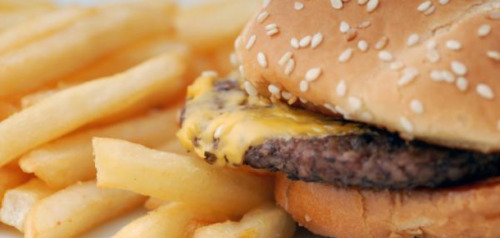Israeli researchers have discovered that high levels of stress activate a gene which affects metabolism and contributes to our cravings for sweet, fatty foods.

Few people would say that they lead stress-free lives. It starts with the pressure to fit in at school, then you need to wear the right clothes, pass your exams, get into a good university, pay off your student loans, meet your mortgage payments – and before you know it, you’re worrying about college funds for the kids.
Some of us already have an inkling that stress is a factor in many of the metabolic and emotional disorders we see today. Stress wears us down and hangs heavy on the shoulders of our immune system. It’s no wonder that the rates of diabetes, anxiety disorders, depression and heart disease are at an all time high. And now for the first time, an Israeli team has located a gene in the brain that appears to be triggered by high levels of stress, and causes a series of negative physiological reactions.
In the recent study published in the Proceedings of the National Academy of Sciences, the researchers from the Weizmann Institute in Rehovot have identified a gene in the brain that when activated causes two very distinct reactions to stress – anxiety and changes in metabolism. A protein released by the gene called Urocortin-3 (Ucn3) appears to be involved in a cascade of events related to stress and to elicit both anxiety-related behavior and type II diabetes in animal models.
Study supervisor Dr. Alon Chen, a neuro-endocrinologist at the Weizmann Institute’s Department of Neurobiology, says: “We showed that the actions of a single gene in just one part of the brain can have profound effects on the metabolism of the whole body.” And this gene may be influencing our choice of snacks, contributing to our cravings for food that is fatty, poor in nutrition and especially sweet. In essence, stress may be turning us fat.
Turning off the ‘stress switch’
“Stress is definitely influencing every system in the body,” says Chen, who recently worked in San Diego for four years on stress research before returning to Israel. He tells ISRAEL21c: “It’s not just causing anxiety, depression and post-traumatic stress disorder but is influencing metabolic syndromes such as obesity. It’s complex.
“In the lab, stressed animals eat less. But in humans some eat more or less when stressed. What’s key here is that food preference is changing,” he explains.
The Israeli researchers have discovered that there’s a ‘stress switch’ that seems to lead to diabetes and obesity.
The Israeli researchers created their own method for changing the activity of the gene in the brain, causing it to release varied amounts of Ucn3. They discovered that increased levels of Ucn3 caused anxiety and changes in metabolism.
With increased levels of Ucn3, the bodies of the mice used more sugar and less fatty acids and metabolic rates increased, showing the first stages of type 2 diabetes. The pancreas produced more insulin and the muscles measured a delayed sensitivity to insulin.
A better stress meter and monitor
Several genes and proteins are involved and coordinated when we’re feeling stressed, Chen continues. The Ucn3 protein that he and his team identified is produced in the brain, which controls the pancreas, muscles, and liver among a symphony of biological processes, and appears to be involved in a cascade of events related to stress.
The Ucn3 appears to be the tie that binds these systems – we have Ucn3 receptors all over our bodies, including in our hearts and muscles.
According to Chen: “This system is not only in the brain, but it is also working in the periphery. Showing up in the heart and muscles responsible for insulin sensitivity, it helps us cope properly with stress.”
Until now the lines drawn between stress, appetite and anxiety were pointed out, but never fully explained. This new research may be the important missing link that can help drug developers create drugs targeting stress that could have multiple side-benefits, like preventing diabetes, promoting heart health and keeping our weight down.
Helpful if you meet a lion
This complexity of the Ucn3 system, with its receptors all over our bodies, probably helps to keep us healthy in normal situations. It’s when our lives run amuck and we are constantly stressed out that nature takes its toll.
“Stress is good when you need to cope with an event, like when you meet a lion. Your metabolism is changing; you consume more sugars, and more glucose goes to the muscles to help you escape the lion,” Chen says.
But it needs to be a fine-tuned response, and an appropriate one. There are no lions running around Wall Street, at least not the furry variety our ancestors met in the jungle. Says Chen: “The stress response needs to be a tightly regulated system. The genes need to kick in at the right time. If any are not working properly it can lead to psychiatric and metabolic disorders.”
At the very least this protein studied in Israel could be used as a biomarker to tell doctors when stress levels, often a subjective measure, are shooting up too high. Then we’d know that it’s time for a vacation.












